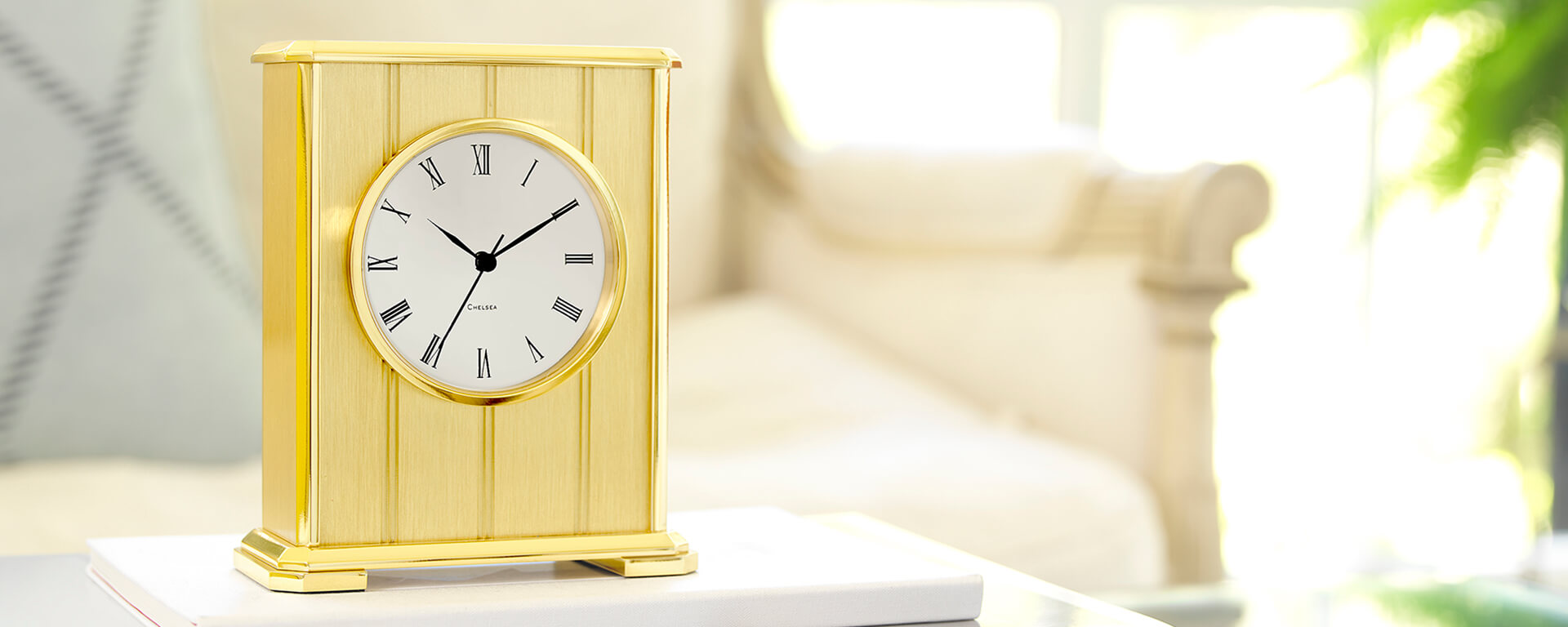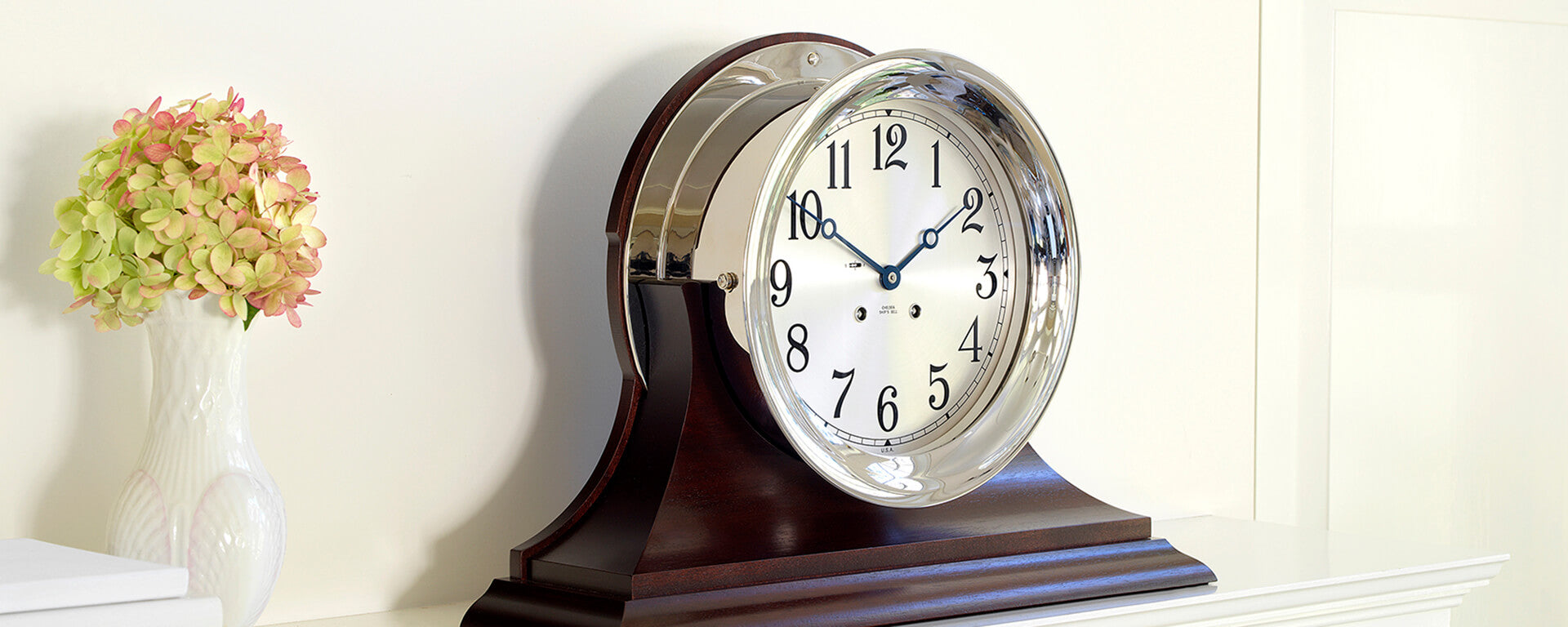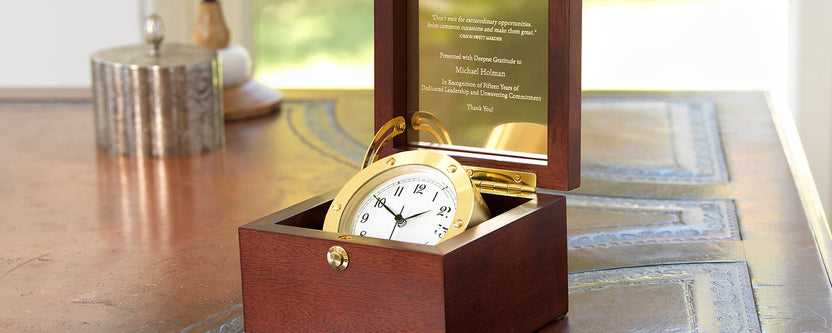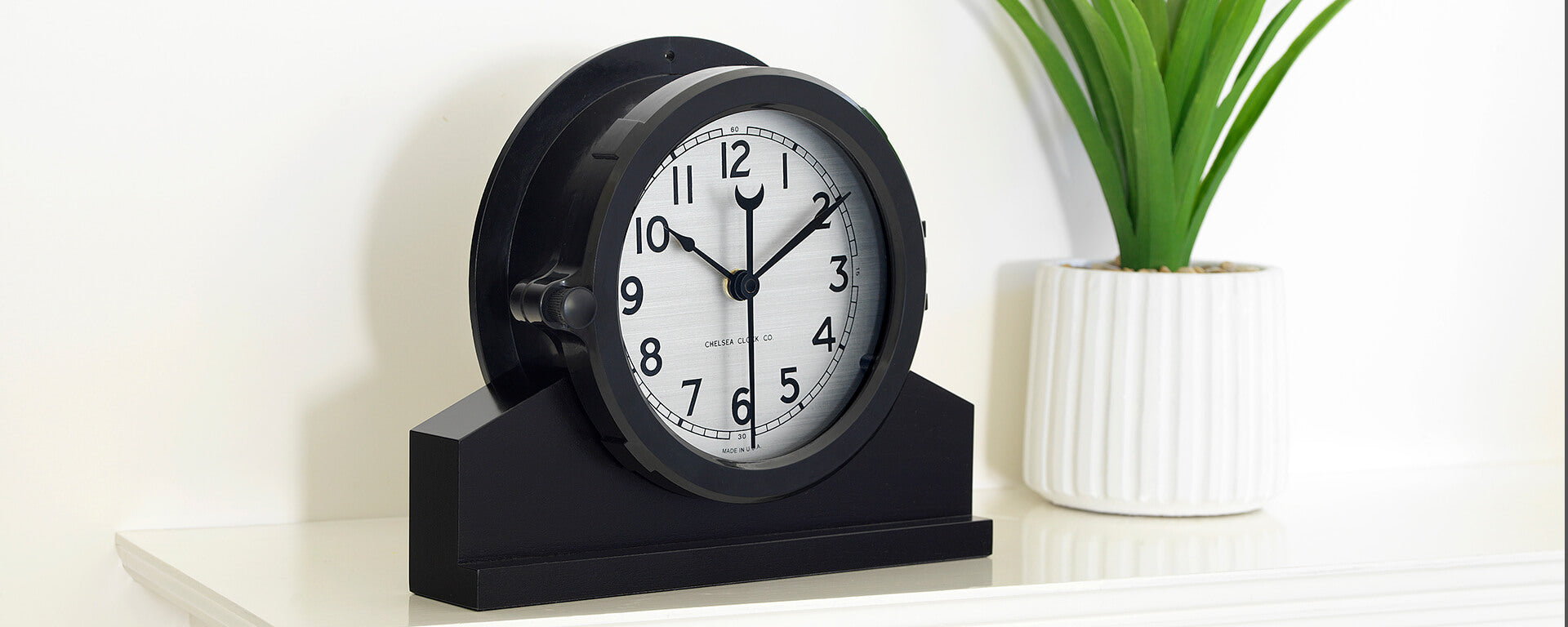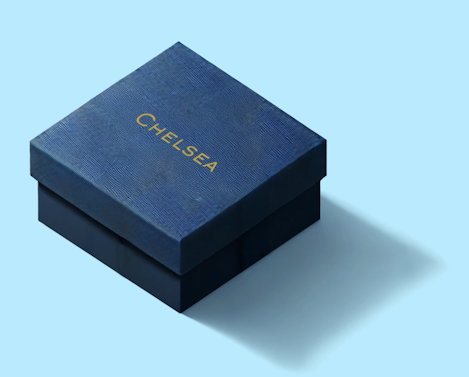Five Things to Consider Before Restoring Your Clock
Perhaps you have a beautiful, antique Chelsea timepiece that stopped working years ago. Or maybe you picked up an old clock at a tag sale and just haven’t gotten around to fixing it. No matter what the make, model, or age of your timepiece, Chelsea Clock can help. Because, in addition to making new clocks, Chelsea also restores and repairs hundreds of antique and damaged timepieces every year. Our master clockmakers are industry certified and bring nearly one hundred years of collective experience to bear on every timepiece they service.
But before you decide to entrust your clock to the experts at Chelsea, here are a few things to consider:
The Value of Your Clock
While restoration can certainly enhance the appearance and functionality of your clock, it may not necessarily improve its monetary value. And, because Chelsea Clock does not provide appraisal services, you may wish to have your vintage timepiece appraised by a qualified antique professional before undergoing restoration. When it comes to enhancing sentimental value, restoration is an ideal way to help preserve a timepiece and ensure its enjoyment by future generations.
The Age of the Timepiece
Remember: the goal of a restoration is to return your clock to its best possible working condition. However, that doesn’t necessarily mean achieving the same level of precision as when it was brand new. Some effects of age and time are simply irreversible, even at the hands of the most skilled clock professionals. And while cleaning, oiling, and adjusting a clock's original parts and mechanisms will help functionality, years of wear and tear can impact overall accuracy.
The Look of the Piece
Not only can restoration improve the inner workings of your clock, it can also greatly enhance its overall aesthetics. Professionally cleaning and refinishing the clock’s case, dial, hands, and other features can all be part of the restoration process. Wooden clock cases can become warped, split, and even burned. Metal cases may show signs of pitting or discoloration. Highly trained and qualified restoration experts can address such issues and apply techniques that can greatly improve the clock’s beauty and elegance. Keep in mind, however, that the severity or extent of damage to a timepiece can have a significant impact on the outcome of its restoration.
Set Realistic Expectations
Restoration often yields dramatic improvements to a clock, but it’s important to set realistic goals at the beginning of the process. In some cases there are limits to what can be done. Not even the most accomplished restoration professionals may be able to eliminate every imperfection from a metal case or make a clock dial look brand new again. Ask questions at the start of the process to find out what’s realistic and what’s not, and then set expectations accordingly.
How Long Can You Wait?
Keep in mind that clock restoration can be a time-consuming process. While most restorations generally take 8-10 weeks, it’s not unusual for some to take longer if the clock has been severely damaged or if new parts need to be custom made. A more accurate estimate can only be provided once the clockmaker has thoroughly inspected and evaluated the clock.
Still have questions? Learn more about restoration services by the experts at Chelsea Clock and receive a free estimate, with no obligation.


